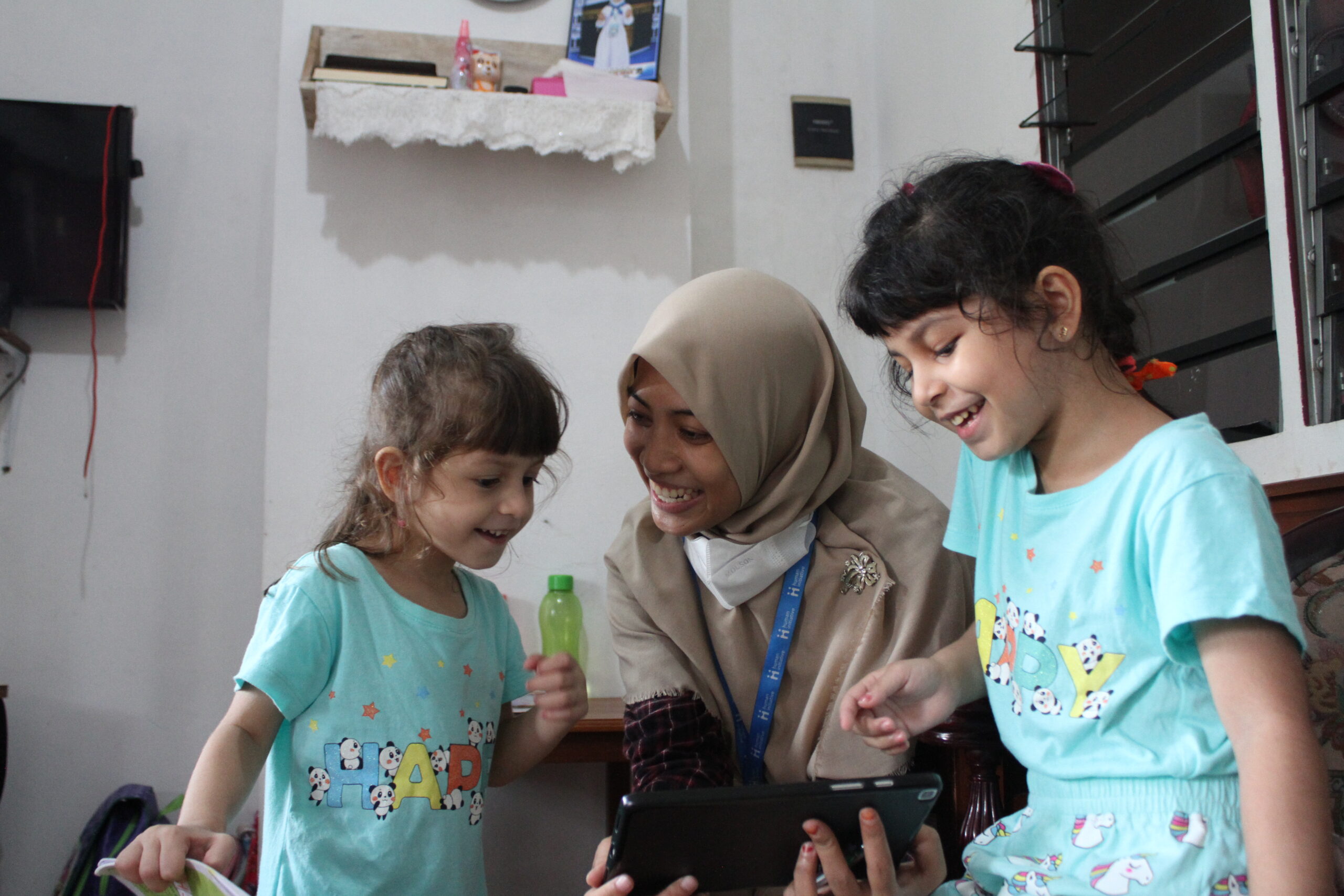
Ways for Parents to Foster a Spirit of Sharing in Children
8 August 2023
Human Initiative – Many people say that the heavy burden of having children is not just about their education and living expenses. There is a significant responsibility for parents to educate their children to be good to their surroundings. One of the initial steps that parents commonly take is to instill a spirit of sharing in their children.
Unfortunately, there are times when children find it challenging to share. Whether it’s sharing toys, sharing food, or taking turns using public facilities in their environment. Hence, many parents worry about their children’s behavior in the future.
Maya Sita Darlina, a Psychologist and Manager of People Experience at Human Initiative, explains that the act of sharing is one of the most crucial aspects of ethical behavior towards other living beings. She believes that cultivating a willingness to share will help shape children into individuals appreciated by society.
“In developing this sharing attitude, parents play a vital role in fostering it. Of course, the development of this sharing attitude should be implemented from an early age,” says Maya.
Why Is My Child Reluctant to Share?
For those who have become parents, you might ask questions like this. Maya Sita explains that there are factors contributing to this behavior in children.
First, children have not yet grasped the concept of sharing. In their toddler years, children do not comprehend that there are many things that can be owned collectively. When they possess something, they tend to think of it as exclusively theirs. Even when they see a toy and hold onto it, they might assume it belongs to them and cannot be played with by their friends.
Second, inappropriate parenting styles. Naturally, parents love their children and want them to be happy. For example, parents might rarely teach or demonstrate to their child the act of sharing what they have with others. Alternatively, parents may excessively pressure their child to share, causing the child to feel annoyed and view sharing as a negative thing. This parenting approach can then lead to difficulty in teaching children to share.
The Future Impact of a Sharing Attitude in Children
Currently, many parents understand the need to shape a child’s character from an early age. They also realize that a sharing attitude significantly influences a child’s character into adulthood. Maya Sita elaborates on two main points below.
1. Cultivating empathy and concern in children
Children who are accustomed to sharing what they have with friends or others in need develop enhanced empathy and concern. When a friend or someone else requires something, the child will not hesitate to offer what they have to assist that person. From this, children will learn that sharing is a positive action that can help others.
2. Fostering a strong social nature in children
Sharing helps children become more sociable with their peers. When playing with friends, a child who is trained to share will not become upset or irritated when asked to share. They will gladly lend their toy or play with it together. This attitude makes children more sociable and easier to connect with their peers.
How to Instill a Spirit of Sharing in Children
Considering the numerous benefits of nurturing a sharing attitude in children’s daily lives, parents need to employ various strategies to develop this quality. Below are a few approaches parents can use to cultivate a sharing attitude in their children.
1. Encourage children to play with friends or siblings
Getting children used to interacting with others can be one way to nurture a sharing attitude. When playing with others, children learn to lend their toys or play together.
What if a child is reluctant to share while playing with their friends? Parents can act as mediators by providing time limits. For instance, parents can allocate 15 minutes for their child to play with their toy. Then, the next 15 minutes, the toy will be shared with their friend.
2. Model sharing behavior for children
Children often emulate what they observe in their environment. Demonstrating sharing behavior in front of a child can encourage them to do the same. When modeling sharing behavior, display positive feelings as well. This way, children learn that sharing is a commendable practice.
3. Validate emotions and provide appreciation
A spirit of sharing is best developed through a child’s willingness, meaning without coercion. Parents need not always ‘force’ a child to share. Sometimes, parents should respect the boundaries the child has.
If a child feels frustrated about being asked to share, parents should validate their feelings and offer guidance kindly. Conversely, when a child is willing to share, offer appreciation to encourage them. Acts of kindness, when reinforced with encouragement or praise, tend to reoccur in the future.
So, Initiator friends, have you discovered a pattern to make your children at home enjoy sharing? Let’s start today and encourage children to practice sharing more widely with Human Initiative.
Visit solusipeduli.org and share various acts of kindness programs with them to stimulate their sympathy and empathy. Don’t forget to involve children in choosing programs and donation amounts to be contributed. May our children become a generation with noble and compassionate hearts towards others.
